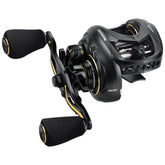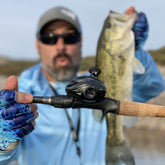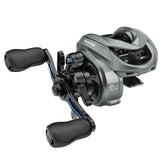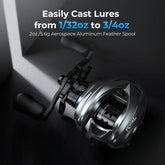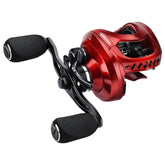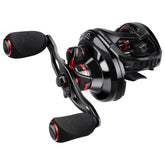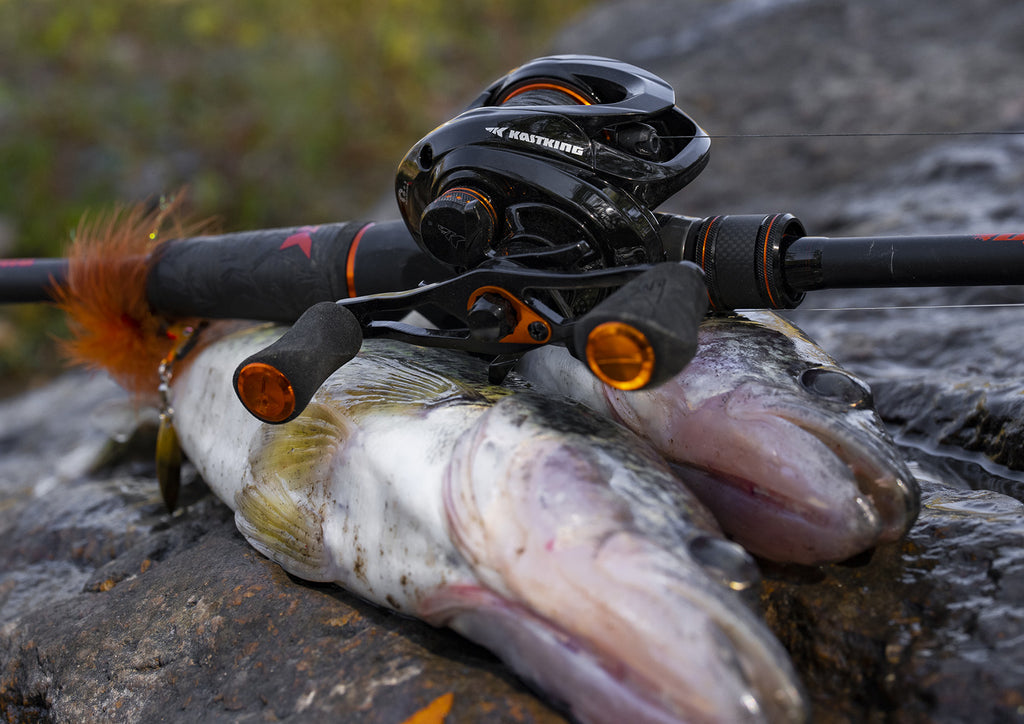
Lake Fishing Tips for Beginners
Fishing in a lake can bring a lot of promise for success. No matter if you are a complete beginner or simply want to increase your skills, there are plenty of things that you can do in order to increase your odds of catching more fish. If this sounds like something you might be interested in, then you have come to the right place! Let's go over some simple fishing tips that will take your lake fishing to the next level!
Choose the Right Tackle
You will need different tackle when fishing in a lake versus fishing in a river, stream, or ocean. Lakes are often home to many different species of fish as well, so you will need to match your tackle to your intended target. Spinning rod and reel combos are a popular choice for lake fishing, and a combo like the Crixus Fishing combo from KastKing can provide enough power and accuracy for just about any lake you go fishing at.

In addition to your rod and reel, come well equipped with a variety of different baits and lures. You never know what the fish are going to be interested in, so it's best to be prepared. Different baits and lures will allow you to change tactics quickly and be more effective than any other fishermen fishing in the same areas.
The tackle that you bring along will also depend on the species that you are after. For example, largemouth bass will require a larger rod and reel than trout. They also chase different lures and baits, so you need to match your tackle for the job that you want to accomplish.
Find the Best Lake Locations
Speaking of fishing areas, one of the best tips for beginners is to do some homework on ideal fishing locations on the lake they intend to fish. Finding the best spots beforehand by searching through google earth or asking friends or family will help you quickly cut down on the learning curve. As a general rule of thumb, start by looking for areas with underwater structures. Places with weeds, rocks, and drop-offs can provide shelter and food for nearby fish, making them a great place to get started.
Another great place to look is an inlet or outlet where a river or stream flows in or out of the lake. These areas attract smaller fish that are looking for an easy meal, which in turn attracts the larger fish. Use a map or a fish finder to begin to locate promising spots to begin your search so that you are starting out on the right foot.
If you have access to a boat, you can get to many more areas on a lake. But even if you don't, there is still some great fishing to be had from shore. Look for points and bluffs that can provide a good spot to cast from. These areas will also tend to hold good numbers of fish as long as they are not overfished.
Be Patient
Many beginners that are fishing on a lake will give up before they ever have a chance to figure out the fish. So it is important to be patient and watch for nearby fish activity. Don't be afraid of moving areas, as fish can be unpredictable. The fish activity could include anything such as movement on the surface of the water, a change in the direction of your fishing line, and bait fish coming out of deeper waters.
Patience is also important when reeling in a fish that you caught. Reeling too quickly or aggressively can cause the fish to get off the line or even snap your fishing line. When you feel a bite at the end of your line, reel it in slowly and steadily. As soon as the fish gets close to the shore or the boat, the use of a net can help get it out of the water without the fish escaping.
Handle Your Fish With Care
Reeling in a fish is extremely exciting, and one of the main reasons we all go fishing. But what do you do with a fish after you've caught it? When you have successfully landed a fish, it is very important to handle it with care. You must first carefully remove the hook from the fish's mouth. Be careful not to harm the fish. From here, if you plan to release the fish back into the water, support its body and slowly lower it back into the water. Give it a few seconds to regain some life and it should swim away.
If you plan to keep the fish, it is important to quickly and humanely kill it. You can then clean and prepare it for cooking and eating. If you aren't ready to start cooking the fish right away, you should still clean the fish and store it in a cool, dry place. You can also wrap them up and freeze them for consumption at a later date.
Final Thoughts
Lake fishing can be a super fun and exciting adventure, but it does require a little bit of knowledge and skill to get you started on the right foot. By following these tips for beginners, you can cut back on your learning curve and start fishing like a pro in no time at all. With great fishing gear like that from KastKing and these tips, you can rest assured that you have everything you need to catch that next fish of a lifetime!







